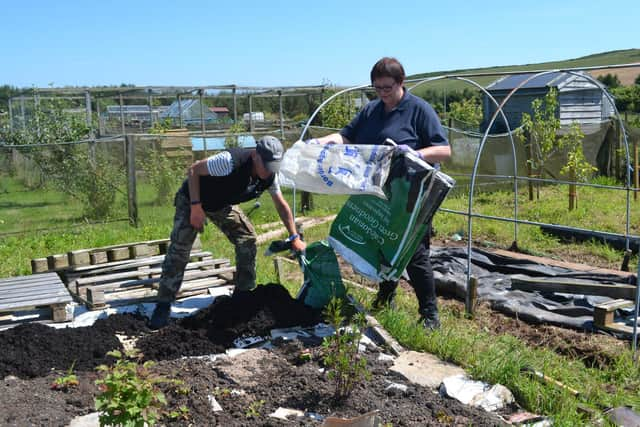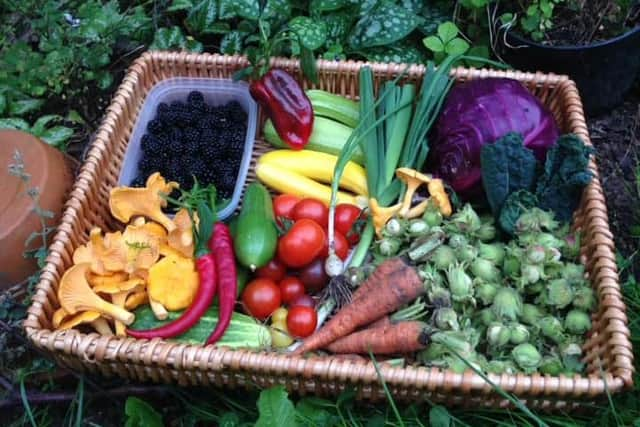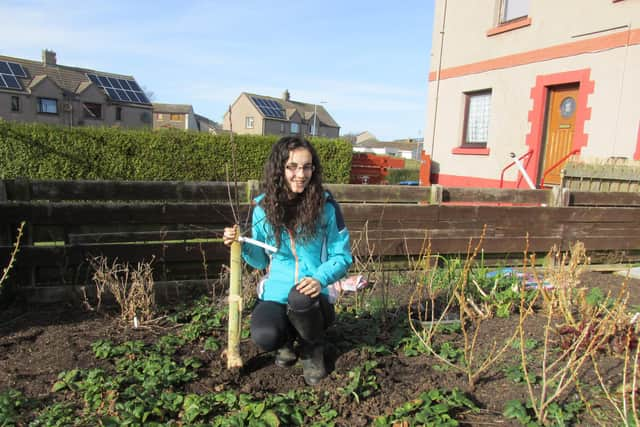Community growth: how local food gardens are benefiting Borders residents
Abundant Borders has a mission to create a network of wildlife-friendly community food gardens across the region, where people can learn how to grow produce in a sustainable way and turn it into nutritious, inexpensive meals.
Set up by co-founders Karen Birch and Annie Casey in 2016, the organisation has achieved a lot in just a few years.
Advertisement
Hide AdAdvertisement
Hide AdGardens have already been set up in Hawick, Ayton, Eyemouth and Duns, created on unused, neglected or derelict land.


With the help of volunteers, the sites have been transformed into fertile plots growing an impressive range of organic crops.
As well as offering useful hands-on training and the chance to get outside in the fresh air, the grounds provide a welcoming environment for people who may be isolated or struggling with mental health difficulties.
“Everything that we do is grounded in care for the environment and for the people who are part of our community,” Ms Birch said.
“We started the charity in 2016 with a big vision - a world where everyone, regardless of personal circumstances, has access to healthy, nutritious food.


“Our mission, as part of this big picture, is to help alleviate food insecurity in the Scottish Borders by creating a network of community food gardens and by teaching the skills needed to grow food and cook meals from these fresh ingredients.
“Over the past four years we have worked across the region, with many local organisations and with the support of many funders, especially the National Lottery Community Fund, to encourage individual and community resilience.
“During these uncertain times it is more important than ever that communities and individuals are supported and as many people as possible grow and cook healthy, fresh food.”
Advertisement
Hide AdAdvertisement
Hide AdProduce grown includes everything from staples such as potatoes, carrots, cabbages and parsnips to celery, beetroot, aubergines, salads plants and herbs, as well as orchard fruits and berries.


Volunteer gardener Rachel Parker has been involved with Abundant Borders since 2017 and regularly helps out at the Eyemouth site.
She has attended food-growing and cookery courses and has assisted with the design and development of the charity’s tree-planting and seed-saving projects.
The 29-year-old loves the entire ethos of the enterprise.
“When produce is ready to eat, volunteers collect it all up and lay it out on a table at the end of the day,” she said.
“It gets divided up fairly amongst the group. People with bigger families get more food.
“It’s totally consensual - everyone gets what they need.
“It’s also great because people are encouraged to try new things and they share recipe ideas.”
But one of the best things about the gardens are the opportunities for meeting other like-minded individuals, especially for those who are lonely or find social situations difficult.
“Everyone feels included and part of it,” she said.
“The gardens offer a semi-structured way to socialise, where you meet folk with common interests.
Advertisement
Hide AdAdvertisement
Hide Ad“It’s a safe, secure environment and gives people a reason to get up, get dressed, go out and do something productive.
“The work also gives them something to talk about, which is especially important when many people are locked down and alone.”
The 29-year-old has been so inspired by the charity’s work that she has signed up to study environmental science through the Open University.
Over the past few years Abundant Borders has also been involved in lots of other food initiatives across the region, including community meals, special social lunches, outdoor cooking, food preservation workshops and much more.
The team has also been sharing their experiences, advising groups from elsewhere on how to go about similar projects.
A message from the Editor:
Thank you for reading this article. We’re more reliant on your support than ever as the shift in consumer habits brought about by coronavirus impacts our advertisers.
If you haven’t already, please consider supporting our trusted, fact-checked journalism by taking out a digital subscription. Visit https://www.scotsman.com/subscriptions now to sign up.
Comments
Want to join the conversation? Please or to comment on this article.